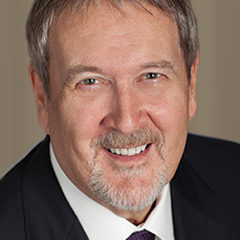
Comparing small tertiary versus larger markets
Entertainment is the X-factor in all casino business. A good entertainment program ties into your customer database, keeping your current customers coming back and creating new customers. A casino without a consistent and quality entertainment program is a casino that is missing the opportunity to stand out.
There are big casino properties out there that are spending a lot of money on their entertainment. From concerts two to three times or more a month, a serious lounge entertainment program with bands playing weekends and sometimes more, plus your added Players Club special events, floor entertainment, and special shows for the off days in the lounge. This is a lot of entertainment, and it’s expensive.
At the other end of the scale, you have smaller properties that may do eight to ten shows a year, and have a small lounge/bar with local groups playing on the weekends.
Where do you find yourself in this mix? Probably somewhere in-between.
Your entertainment budget will dictate what you can do. A small budget for a smaller property may be in the $300K – $500K range. Some large properties spend two million or more on their entertainment. Your program has got to be based on your customer base, your regional demographic, and of course your budget. Here are a couple of examples:
CASINO A – Located in a small secondary/tertiary market.
Primarily a locals casino market, typically blue collar. The casino has a small multi-purpose room that can seat around 800 people, and it has a smaller budget. The casino has determined that they will focus on providing concert entertainment once a month, except during the summer months, when local festivals, fairs and outdoor family events are more prevalent.
They are good community partners and help sponsor some of the local summer events. Their budget for concerts would reasonably top out around $25-30K per show. They are the center for entertainment in their small region. Reasonably speaking, each show they have is very important.
Is this your casino? Here’s your strategy:
They need to focus on quality and be consistent. For your older country demographic, you might look at Ronnie Milsap, Tanya Tucker, John Anderson, Pam Tillis, Neal McCoy, Tracey Lawrence, BJ Thomas, while for the classic rock side, it might be Loverboy, Great White, Night Ranger, Skid Row, Grand Funk, Guess Who, etc.
Their customer looks forward to that special night out for a show and some fun. Typically in this kind of regional marketplace, classic country and classic rock are your go-to genres. Venturing too far from this kind of show can be a little adventurous, and not always successful. Your goal here is to provide a couple of shows for your older demographic, some rock shows for a younger demo, and some country shows for your average customer. Once your program is established, you can try some different kinds of shows. Always present new ideas carefully, keeping your brand and goals for your program in mind.
CASINO B – Located closer to a larger population base.
The venue size may be anywhere from 1,500 – 2,500 seats. Generally this casino has numerous amenities – fine dining, a golf course, hotel, spa, and a variety of restaurant offerings. This is a getaway destination for customers. The entertainment program has a large budget, and needs to look at their month by month offerings.
Is this your casino? Here’s your strategy:
Each concert tends to be geared towards a specific customer. For example, you may do an Asian show 3-4 times a year. In the Southwest, it would be adding a couple of strong Hispanic shows. You would look at classic country (Merle Haggard, Don Williams, Charley Pride, Loretta Lynn, etc.) for one demographic, and turn around and bring in young country (Frankie Ballard, Dustin Lynch, Scotty McCreery, Kelsea Ballerini, Cole Swindell, etc.) for your younger crowd.
Classic rock big names like Heart, Styx, REO, Doobie Brothers and Foreigner would play your venue, and for the younger generation – Collective Soul, Rachel Platten, Breaking Benjamin, Three Doors Down, Tesla, and Queensryche would be in the mix.
In addition to these kinds of groups, you would add in some R&B – Four Tops, Temptations, Spinners, Keith Sweat and Boyz II Men, etc. Comedy like Tim Allen, Bill Engvall, George Lopez, Rodney Carrington, Roseanne Barr, etc., would be in your mix as well. You would look at variety types of entertainment like Jack Hanna, Terry Factor, Cesar Milan, Price is Right Live, etc.
Your lounge program would feature top regional bands playing maybe as much as 3-4 days a week, instead of just weekends. You might consider running a regional type comedy show, like Laugh Catchers, midweek once a month. All of this is a fairly complicated mix of entertainment that has been planned out and tweaked year by year.
The bottom line with any entertainment program is consistency.
Too many casino properties struggle to put together a strong strategic plan and stick to it. Everyone is in a hurry to see results, but results take time to reveal themselves. A good, strong, reasonable strategy needs to be put in place and nurtured. Each show you do will give you insights on what you might change or do differently. For instance, a comedy program takes months to become established. Don’t just give up after the first couple of shows. It takes time for your customers to adjust and believe in your entertainment. Too often, casinos drop programs before they have had a chance to succeed. This is frustrating for everyone, including your customer.
The entertainment program you put in place is your foundation to build off of. The research to understand the kind of program you need comes from your Players Club, your database, your knowledge of your region, and your people putting this program together. Then there is the reality check. Artists you are seeing on TV or hearing on the radio are typically going to cost you more than you can really spend. This is a tough issue for your team to understand. Typically speaking, an outside talent buyer has much more experience and understanding about the business than an inside person who wears a multitude of hats. This is especially true for smaller properties. A good team is important.
The wrong kind of program that is not tuned into your customer can cost you a lot of time and money. There is really no margin for mistakes today. It takes a long time to rebuild a program. It only takes a few bad decisions to undo things. So I recommend small steps, careful planning, and patience. Success leaves clues. The casino business in Las Vegas is constantly changing and tweaking. Look at what is happening all around you, and see how to apply that knowledge to your program.







